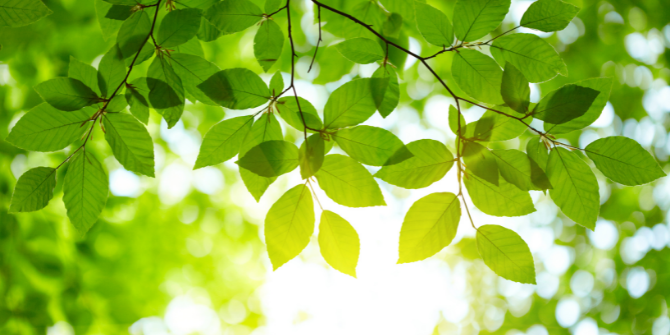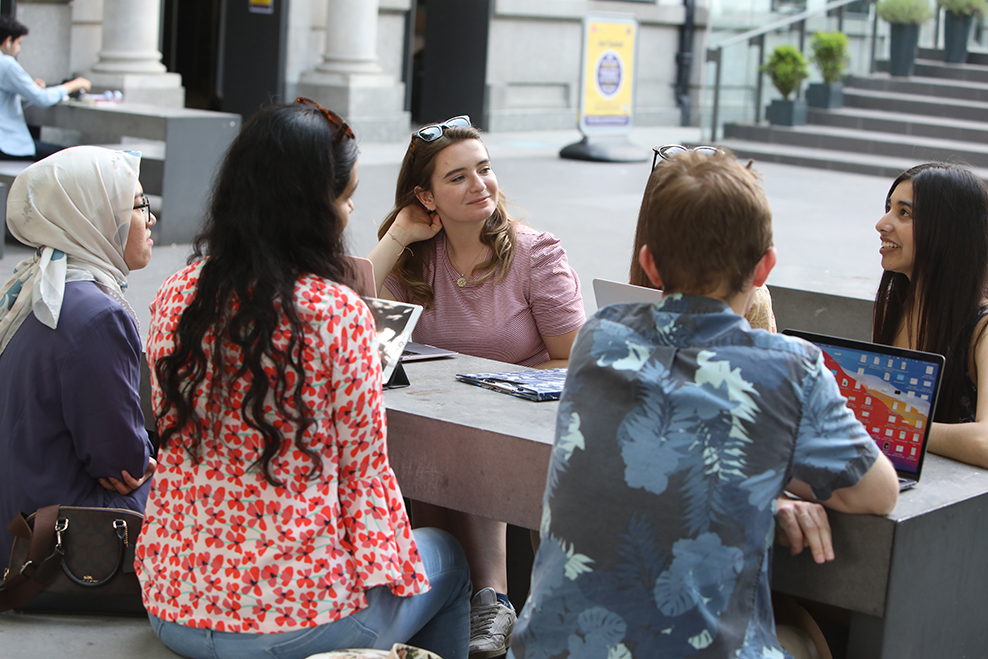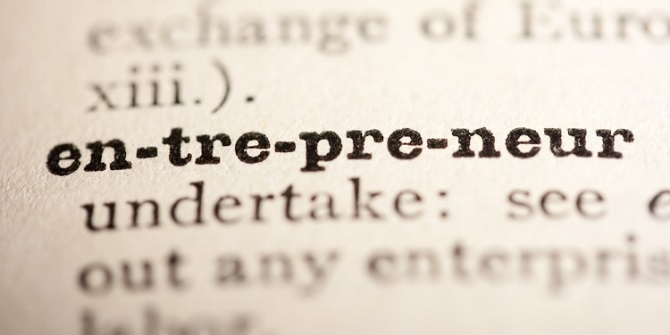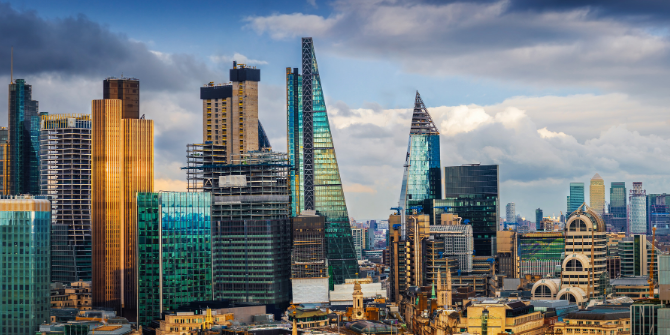In this student guest blog, PhD candidates Michelle and Heidi recount their time at the 2023 LSE SPRING retreat at Birch Community Hotel.
Introducing the SPRING retreat
They say doing a PhD is like running a marathon. Having herself run the Big Sur Marathon along the steep and windy Pacific Coast Highway, Heidi can attest to the importance of those little breaks along the way to refuel and refresh. Whether it’s a breath-taking vista overlooking the ocean, a little girl handing out fresh strawberries, or simply a ‘pit stop’ to take fluids in (or let fluids out!), we all need occasional respite from the stress and strain of academic life. The LSE SPRING retreat provided all that, and so much more.
Held at the Birch Community Hotel located 30 minutes north of London by the Overground, the retreat brought together PhD students from seven different departments to renew, reflect, and reconnect with purpose and passion. But first, a moment of awe. The location was absolutely beautiful with gardens, hiking trails, an onsite pottery studio and bakery, and even its own flock of sheep. As we arrived at the historic country estate-turned-hotel/wellness centre in Cheshunt, it was hard to believe that we were here, not for a leisurely mini-break, but to do some serious post-PhD career planning instead. For the 14 of us who were lucky enough to have secured a spot at the overnight retreat co-sponsored and funded by LSE SPRING, LSE Generate, and LSE Careers, however, it was time to get to work.
Day one (by Michelle)
What a great place to reflect on the PhD journey and where it might take those of us who are considering a non-academic path. As Catherine Reynolds characterised it in our first interactive session of the morning: how can we better understand what shapes a professional career?
Catherine’s workshop was followed by a discussion with four PhDs in positions outside of academia where they either lead or participate directly in candidate selection and hiring for their respective organisations. My three big takeaways were:
1) You’ve really got to be serious about tailoring CVs and cover letters to the position, and do your homework beforehand so that you understand the job you’re applying for and the institutional culture behind it;
2) Translating the skills and attributes acquired during the PhD process into concise language that reflects a non-academic client’s delivery expectations and requirements is critical; and
3) Acquiring a solid foundation in methodology should be a priority while still in the PhD programme.
We then concluded the working part of the day with what I’ll call a “self-care” session with executive coach and nutritional therapist, Hayley Pedrick. Hayley covered a range of subjects, from dealing with your inner critic, to communicating with power, to sleep and nutrition for managing stress. As a side benefit to coming on the retreat, we were given the opportunity to have one-on-one coaching with Hayley. She was so dynamic and practical; I couldn’t wait for mine!
As with most events where I have a chance to really interact with LSE peers from outside my department, I was struck by how much we all have in common. We are a very diverse group in terms of age, nationality, background and experience. Yet we are all here with the common goal of making a positive impact through our research and expertise. With that vision, however, comes a lot of anxiety, uncertainty, and yes, insecurity. Having the opportunity to work through some of our issues in such a beautiful, supportive environment is invaluable. As I left dinner late at the end of day one, all I could think of was how glad I was that I’d signed up for the retreat, and how much I couldn’t wait for day two.
Day two (by Heidi)
Some part of you steps aside to let something else come forward.
– Jason Wright, psychotherapist and group facilitator
We started the morning of day two with a deep exploration of the values which motivate and guide each of us through our PhD journey. The session was led by Jason Wright, who applied his skills in community building to creating a safe space for us to share experiences, lessons learned and success stories. In small breakout groups, we first discussed our dreams and aspirations, alongside our frustrations, challenges and disappointments. Reconvening into the wider circle, we were then invited to reflect on what might be hindering us and to explore that in conversation with our peers. Jason encouraged us to search for what is ‘alive’ for each of us and to engage with those we find inspiring, in order to overcome obstacles and reach our goals: ‘Think about the community for whom this work matters.’ The group exercise helped us reconnect with why we chose this path and the impact we want to have with our research.
Planning pathways to impact
After a short break for coffee and pastries, we moved from the ‘why’ and the ‘what’ to the ‘how’ in an applied session with Rachel Middlemass. Rachel had a decade-long career in Research Impact at LSE and UCL before bringing her passion and expertise to the London-based venture capital fund Zinc as Head of R&D Partnerships. Using success stories from recent Zinc start-ups as well as REF case studies at LSE, Rachel talked us through the process of how to translate academic findings into real-world change. This session was a real eye-opener for any researcher wanting to tackle big social problems through mission-driven programmes. From NGOs, think tanks and consultancies to private and commercial enterprises, we learned about multiple pathways to creatively apply our talents and interests to collaborate across sectors for the benefit of society.
Down time!
Birch gives you the time and freedom to pause, think, create, and savour. All so you feel energised and inspired, with new ideas and stories to tell.
After the intensity of the morning sessions, the afternoon was all ours to process and ponder what we’d learned and experienced. For some, this meant wandering the spacious grounds and introducing ourselves to the chickens, pigs or newly shorn sheep; for others, a one-to-one power coaching session with Hayley Pedrick. Many of us took advantage of the Wellness Space to do a yoga or meditation class or work out at the gym. A hidden delight – and one of the highlights of the retreat for me – was The Lido, complete with poolside bar, where we swam, splashed and laughed for hours until reluctantly taking our leave and heading back to London…but not before exchanging contact information and making plans to meet up again soon.
Closing thoughts
Like running a marathon, I suspect one of the main things that gets us through the PhD is knowing that everyone here is going through the same thing and headed for the same finish line. We do it together. The sessions at the LSE SPRING retreat were top-notch. We received valuable insights into how to develop and apply our knowledge, what ‘transferable skills’ to showcase when approaching prospective employers, where to get further training and support – the list goes on! Yet it was the opportunity to engage in this learning alongside my peers that allowed me to see the way past my current challenges to the rewards which wait on the other side of the finish line. Revived and refreshed, I came away with new perspectives, a broader network of support, enduring friendships, and memories for a lifetime.
Find out more about the SPRING programme:
- Visit the PhD: Beyond academia section of the LSE Careers blog.
- Visit the SPRING programme pages on the LSE website.





